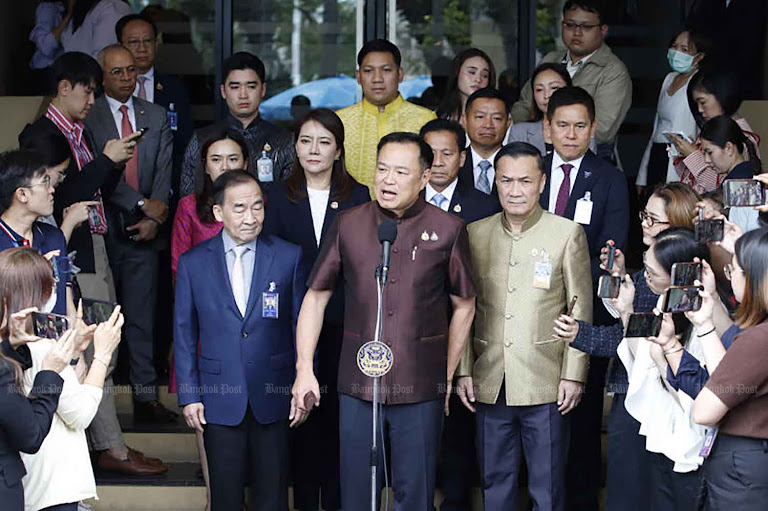Thailand Coalition Faces Turmoil Anutin Rejects Ministry.
Anutin’s rejection of a key ministry reveals Pheu Thai’s power grab and potential coalition collapse, impacting future policy and stability.

The political landscape in Thailand is undergoing yet another churn, and the implications reach far beyond a simple change in personnel. The news that Interior Minister Anutin Charnvirakul rejected an offer from the ruling Pheu Thai Party to trade his key portfolio, as reported by the Bangkok Post, signals a deeper instability within the coalition government and exposes the underlying tensions inherent in multi-party systems.
The core of the issue isn’t merely about specific ministries; it’s about power, control, and the delicate dance of maintaining a governing coalition. Pheu Thai’s desire to control the Interior Ministry—a position with considerable influence over local administration and elections—speaks volumes about their strategy for the upcoming two years before the next general election. Thaksin Shinawatra’s reported rationale that Pheu Thai needs to effectively deliver its policies through this ministry underscores this point.
This move raises several crucial questions about the long-term viability of the current political arrangement. When a senior member of the ruling party—the father of the Prime Minister no less—publicly states the need to consolidate power through a specific ministry, it erodes trust and invites suspicion from coalition partners. Bhumjaithai’s response, culminating in the rejection of the offer and potential departure from the coalition, illustrates the cost of such a power play.
Here’s a breakdown of the potential consequences:
- Coalition Instability: Bhumjaithai’s departure, with its 77 MPs, would significantly weaken the government’s majority, forcing Pheu Thai to seek new alliances or risk facing increased opposition.
- Policy Gridlock: A weakened coalition could lead to increased political maneuvering and a decreased ability to pass legislation, potentially hindering the government’s ability to address pressing issues.
- Electoral Repercussions: The reshuffling could affect public perception of the ruling party, potentially impacting their performance in the next election. It also speaks to a potential overreach from the Shinawatra family and the Pheu Thai party, and signals to voters that internal cohesion might not be the strongest suit of this coalition.
The offer, and its subsequent rejection, highlights a fundamental tension: the desire for stability versus the ambition to consolidate power. In coalition governments, the constant negotiation and compromise are not just procedural; they are the very essence of governance. When one party attempts to unilaterally shift the balance of power, the entire structure is threatened.
The silence from Prime Minister Paetongtarn Shinawatra on the matter further complicates the situation. Her refusal to comment on the cabinet reshuffle or Bhumjaithai’s potential departure creates a vacuum filled with speculation and uncertainty. This lack of transparency undermines public trust and fuels the perception that the government is prioritizing political maneuvering over addressing the needs of the people.
The fact that Anutin acknowledges media reports of his staff packing belongings paints a vivid picture of the rapidly changing dynamics within the government. This isn’t simply a disagreement over policy; it’s a fundamental shift in the political landscape, one that could have far-reaching consequences for Thailand’s future. The apparent resignation of the Deputy House Speaker also adds to the impression of a party preparing for a significant change in its relationship with the government. How this all plays out remains to be seen, but the episode serves as a potent reminder of the inherent fragility of coalition politics and the enduring struggle for power at its heart.









